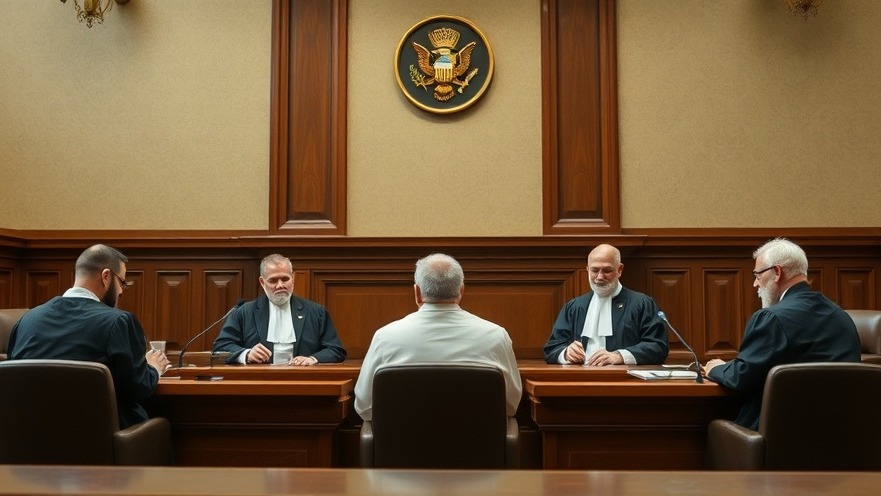
Trump Tariffs Declared Illegal: A Judicial Blow to Trade Policy
A federal appeals court has made a landmark ruling, declaring many of the tariffs imposed by former President Trump's administration as illegal. This decision comes as part of a larger ongoing legal challenge involving Democratic states and small business groups who argue that the tariffs, which have been a cornerstone of Trump's trade strategy, exceed what the president can legally impose under federal economic emergency laws.
The Ruling's Implications for U.S. Trade
The U.S. Court of Appeals for the Federal Circuit upheld a lower court's stance that found these tariffs violate the International Emergency Economic Powers Act (IEEPA) of 1977, a law intended to regulate imports during national emergencies. However, the court emphasized that this does not grant the president the unlimited authority to impose tariffs without congressional oversight.
This ruling could change the way tariffs are used in U.S. trade policy moving forward. As the court observed, the authority to levy tariffs is recognized as a core power of Congress, suggesting that future presidents may need to reconsider their approaches to trade and economic policy to stay within legal boundaries.
Trump's Response and Implications for Future Trade Policy
In a furious response to the ruling, Trump took to social media to denounce the decision as "highly partisan" and predicted dire consequences for the United States if it stands. Meanwhile, Attorney General Pam Bondi stated that the administration would likely appeal the ruling to the Supreme Court, asserting it undermines the nation’s stature on the global stage and interferes with the president's rightful role in foreign policy.
Do Tariffs Achieve Their Intended Outcomes?
The imposition of tariffs has been a contentious topic among economists and trade experts. Critics argue that tariffs can stifle competition and negatively impact consumers by raising prices on imported goods. Supporters assert that they help protect American businesses and jobs from unfair international competition. The courts ruling may lead to questions about the long-term effectiveness of tariffs as a policy tool and whether they truly accomplish their intended outcomes or simply jeopardize economic relations.
What Comes Next? Future Predictions and Insights
As the legal wrangling continues, it remains to be seen how the current administration will proceed. If the Supreme Court decides to hear the case, a final ruling could take months, leaving businesses and consumers in limbo regarding the impact of tariffs on their purchases and overall economic conditions. The potential for reduced tariffs might also rekindle trade negotiations with countries currently affected by these duties, hinting at a possible shift in U.S. trade relations worldwide.
Consumer Impact: Understanding the Stakes
For individuals and families across the nation, the outcome of this tariff debate matters. Tariffs typically lead to increased prices on everyday goods, from appliances to clothing, affecting consumers' budgets directly. As prices rise due to tariffs, consumers may find their purchasing power diminished, igniting wider discussions about economic fairness and access to goods.
Conclusion: A Call for Action in American Trade Policy
As this pivotal case unfolds, citizens must stay informed and engaged. Understanding the implications around tariffs is essential, as it affects everyone, from small business owners to families. Now is the time for individuals to advocate for transparent trade practices that prioritize consumer welfare and foster fair competition. The outcome of this judicial ruling could set significant precedents that shape U.S. economic policy for years to come.
 Add Element
Add Element  Add Row
Add Row 



Write A Comment